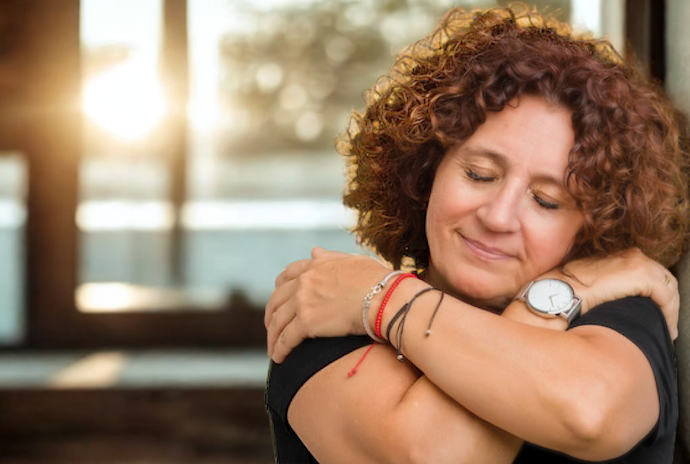By Samara Al-Omaishi, MA
Healing from an eating disorder isn’t just about changing how someone eats—it’s about helping them feel more in control of their life, reconnecting with their body, and feeling seen and understood for who they are.
At CTC, we believe that everyone’s journey is unique. That’s why we focus on care that’s kind, respectful, and tailored to each person’s background and needs. We use approaches that reduce harm, center the person’s voice, and respect different cultural experiences—because healing should feel safe, supportive, and empowering.
Challenging The “Thin Ideal” by Fighting Fatphobia and Colonialism
Fatphobia is the bias or discrimination against people in larger bodies, often based on harmful stereotypes. It shows up in everyday life—like in media, healthcare, and social settings—by treating people unfairly because of their size. Challenging fatphobia means respecting all bodies and recognizing that health and worth aren’t defined by weight.
Colonialism is based on powerful nations taking control of less powerful nations. Colonialism was never just about taking land—it was also about forcing certain values and beliefs onto people, including narrow ideas about what bodies “should” look like. That often meant praising thinness and whiteness while dismissing other body types and cultural views on health and beauty. Today, fatphobia keeps that legacy going by holding up those same harmful standards. It especially impacts people in larger bodies, and even more so in non-Western and non-white communities. These dominant messages about weight and health aren’t just untrue—they’re harmful, and they can fuel disordered eating and make healing feel even harder.
Because so much harm has been done to people in all kinds of bodies, we believe the Health at Every Size (HAES) approach offers the most compassionate and effective way to support healing. At it’s core, HAES is about respect – respect for body diversity, individual experiences, and for the fact that health doesn’t look the same for everyone. It shifts focus away from weight and toward overall well-being. This entails looking at mental, emotional, and social health, not only physical numbers on a scale. HAES helps people build a more sustainable and kind relationship with food, movement, and their bodies – free from the pressures of diet culture.
Meeting You Where You’re At
Healing is not a linear process, and expecting immediate resolve from eating disorder behaviors can be unrealistic and even harmful. A harm-reduction approach is a way of supporting someone that focuses on reducing the negative effects of a behavior, rather than demanding that the behavior stop completely right away. It recognizes that people use certain behaviors—like restricting, bingeing, or purging—as ways to cope, even if those behaviors are risky or harmful. Instead of pushing for immediate change, harm-reduction meets people where they’re at and helps them find safer ways to care for themselves, at their own pace. It’s about safety, compassion, and honoring a person’s readiness and capacity for change. This approach builds a foundation of trust, safety, and agency, while allowing individuals to work toward sustainable change at a pace that aligns with their needs and capacity.
Balancing Safety, Empowerment, and Individual Choice
Traditional treatment models often prioritize rigid recovery expectations, which can leave individuals feeling powerless. A person-centered approach to eating disorder treatment emphasizes autonomy, ensuring that individuals remain active participants in their own care. Rather than dictating what recovery “should” look like, our approach aims to support individuals in defining healing for themselves. Honoring a person’s autonomy and sense of agency not only reinforces that they are the expert of their own body and experience, but also fosters a sense of empowerment.
We know that eating disorders can sometimes be really dangerous, both physically and emotionally. At the same time, we also know how important it is for you to feel in control of your own healing. That’s why approaching safety as a conversation—not a set of rules- is crucial. If there are health concerns, they should be spoken about openly and collaboratively with your mental healthcare provider to come up with a plan that feels supportive, not restrictive. The goal is to help you stay safe without making you feel like your choices are being taken away. It’s about finding that balance where you can feel both heard and cared for.
Honoring Lived Experiences and Cultural Wisdom
Most traditional eating disorder treatment is based on narrow ideas about what bodies “should” look like and what health “should” mean—usually shaped by white, Western, and thin-centric standards. But bodies, food, and healing mean very different things across cultures and communities. A decolonized approach makes space for that. It acknowledges how things like racism, historical trauma, and cultural pressure can shape a person’s relationship with food and body. This way of working is about honoring your lived experience and bringing in healing practices that actually make sense for you and your background. It challenges the idea that there’s just one right way to be healthy and instead invites a more inclusive, affirming, and meaningful path toward healing. At CTC, we use this approach to intentionally center your unique identity and values, bringing a relational, collaborate, and respectful approach to treatment.
Healing in Community
At CTC, we believe in the healing power of relationships and community. Healing from an eating disorder is not meant to happen in isolation. Community support—whether through group therapy, peer connections, or advocacy efforts—can play a crucial role in challenging harmful societal narratives around food and bodies. Individual and collective healing and empowerment are possible when people are seen, heard, and respected.
You Are the Expert of Your Own Body
At the heart of a holistic approach to eating disorder recovery is the belief that you are the expert of your own body and experiences. Treatment should not impose rigid recovery expectations but rather provide support, tools, and a space to explore what healing means to you on a personal level.
Everyone deserves care that is affirming, inclusive, and respectful of their unique journey toward healing.

